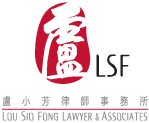Best Conveyancing Lawyers in Macao
Share your needs with us, get contacted by law firms.
Free. Takes 2 min.
Free Guide to Hiring a Real Estate Lawyer
Or refine your search by selecting a city:
List of the best lawyers in Macao
About Conveyancing Law in Macao
Conveyancing in Macao refers to the legal process of transferring the ownership of real estate property from one person or entity to another. Unlike some other jurisdictions, conveyancing in Macao is highly regulated and follows specific procedures as dictated by local laws. It involves preparing legal documents, ensuring compliance with property laws, arranging for payments of taxes and duties, as well as registering the change of ownership with the Land Registry. The main objective is to assure both the seller and buyer of the legal validity and security of the transaction.
Why You May Need a Lawyer
Engaging a lawyer for conveyancing in Macao is not only advised but is typically required by law. Among the most common situations where a lawyer’s help is necessary are:
- Buying or selling residential or commercial property
- Transferring property as a gift or inheritance
- Resolving property disputes or clarifying title ownership
- Assisting with properties that have encumbrances or are subject to mortgage
- Handling off-plan purchases or new developments
- Navigating cross-border or foreign ownership issues
A lawyer ensures that your interests are protected, all legal requirements are met, and the process proceeds smoothly without costly mistakes.
Local Laws Overview
Conveyancing in Macao is governed primarily by the Macao Civil Code and various local administrative regulations. Key aspects include:
- All property transactions must be documented in a notarial deed, executed before an authorized notary
- The sale becomes legally binding only after registration at the Land Registry
- Both parties must ensure there are no outstanding encumbrances, mortgages, or unpaid taxes on the property
- Foreigners can buy and sell property in Macao, with almost no restrictions, but must adhere to the same legal process as locals
- Tax obligations such as stamp duty and property transfer tax must be calculated and paid
- Specific rules may apply for properties held on long leases, public housing, or as part of inheritance procedures
The process is formal, document-heavy, and typically requires the involvement of legal professionals at multiple stages.
Frequently Asked Questions
What is the first step in buying property in Macao?
The first step is to negotiate terms with the seller and sign a provisional sales agreement. Both parties will then appoint a lawyer and schedule the drafting and execution of official notarial deed documents.
Do I need a lawyer for a property transaction in Macao?
Yes. It is mandatory to have a lawyer draft, review, and witness the notarial deed, as well as to handle other legal requirements of the conveyancing process.
Can foreigners buy property in Macao?
Yes, foreigners can purchase property in Macao with minimal restrictions, but they must comply with all local legal and tax requirements during the transaction.
How are disputes over property boundaries or ownership resolved?
Disputes are generally resolved through legal proceedings, with lawyers gathering evidence and, if necessary, the involvement of the Land Registry or courts to clarify title and boundaries.
What taxes or fees must be paid when buying or selling property?
Buyers are typically responsible for stamp duty, property transfer tax, and registration fees. Sellers may also have tax obligations depending on the transaction and property type.
How long does it take to complete a property transfer in Macao?
The process can take several weeks to a few months, depending on the complexity, the readiness of documents, and the efficiency of the Land Registry and notaries involved.
What role does the notary play in conveyancing?
The notary oversees the signing of the deed, ensures all legal requirements are met, and helps register the transaction officially with the Land Registry.
How do I verify if a property has outstanding debts or encumbrances?
Your lawyer will conduct due diligence at the Land Registry to ensure the property is free of unpaid taxes, mortgages, or other encumbrances before the transaction.
Can property be gifted or inherited in Macao?
Yes, property can be transferred as a gift or via inheritance. These processes have their own legal steps, usually requiring a lawyer and notarial deeds, as well as payment of relevant taxes or duties.
What happens if one party withdraws before completion?
If the sale falls through after a provisional agreement, there are usually penalties set out in the agreement. Lawyers will advise on your rights and remedies in such situations.
Additional Resources
For further information or assistance, you may consult the following resources:
- Macao Land Registry (Conservatória do Registo Predial) - for property registration and title verification
- Ordem dos Advogados de Macau (Macao Bar Association) - for finding qualified lawyers
- Notary Offices (Cartório Notarial) - for scheduling and executing notarial deeds
- Financial Services Bureau (Direcção dos Serviços de Finanças) - for property taxes and related fiscal matters
- Legal Advice Centers - some local public services and non-governmental organizations provide free or subsidized legal advice for eligible residents
Next Steps
If you require legal assistance with conveyancing in Macao, start by identifying a qualified local lawyer who specializes in real estate transactions. Prepare your personal identification documents and any information or agreements related to the property. Consult the lawyer as early as possible to review all contracts and ensure compliance with local laws. Request detailed explanations for any point you do not understand. Make sure to verify the lawyer’s credentials with the Macao Bar Association. Early legal guidance can help you avoid costly mistakes and ensure a secure, legally compliant property transaction.
Lawzana helps you find the best lawyers and law firms in Macao through a curated and pre-screened list of qualified legal professionals. Our platform offers rankings and detailed profiles of attorneys and law firms, allowing you to compare based on practice areas, including Conveyancing, experience, and client feedback.
Each profile includes a description of the firm's areas of practice, client reviews, team members and partners, year of establishment, spoken languages, office locations, contact information, social media presence, and any published articles or resources. Most firms on our platform speak English and are experienced in both local and international legal matters.
Get a quote from top-rated law firms in Macao — quickly, securely, and without unnecessary hassle.
Disclaimer:
The information provided on this page is for general informational purposes only and does not constitute legal advice. While we strive to ensure the accuracy and relevance of the content, legal information may change over time, and interpretations of the law can vary. You should always consult with a qualified legal professional for advice specific to your situation.
We disclaim all liability for actions taken or not taken based on the content of this page. If you believe any information is incorrect or outdated, please contact us, and we will review and update it where appropriate.
Browse conveyancing law firms by city in Macao
Refine your search by selecting a city.









